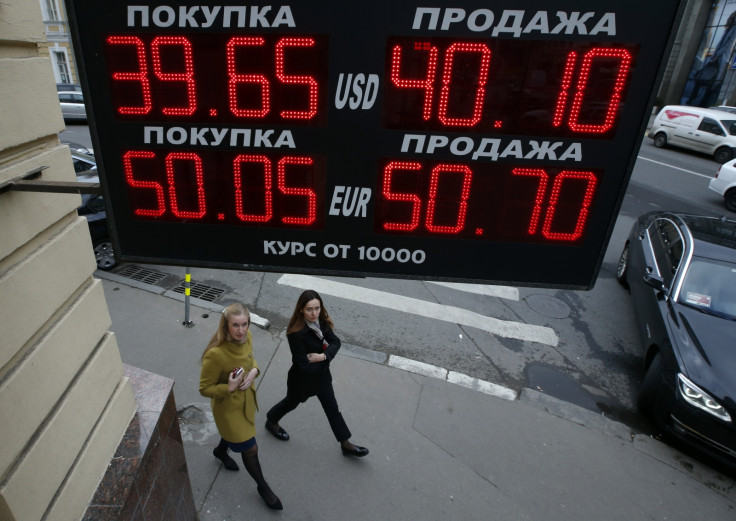Rouble Jumps After Russian Central Bank Allows Free Float

Russia's central bank said on Monday it would allow the rouble to float freely, after it abandoned the currency's trading corridor.
The bank reasserted in a statement that it would intervene in the foreign currency market if it saw a threat to financial stability.
"As a result of the implementation of this decision, the ruble exchange rate will be determined by the market factors, that should enhance the efficiency of the Bank of Russia monetary policy and ensure price stability," the bank said in a statement.
The rouble increased by more than 2% against the dollar after the announcement on Monday morning, reaching 45 against the dollar.
Meanwhile, Russia's rouble has fallen as much as 48% against the dollar in 2014, making it one of the world's worst performing currencies.
Falling oil prices and geopolitical tensions have put intense pressure on Russia's currency, amid fears that its economy is heading for a recession.
Oil prices have fallen more than 25% since June, spectacularly cutting the revenues Russia received from energy exports.
Russia's economic outlook has worsened since Moscow annexed the Black Sea peninsula of Crimea, provoking a wave of economic sanctions form Western powers including the United States and the European Union.
The Western allies have tightened sanctions on Moscow as the crisis has worsened in eastern Ukraine, sparking a wave of capital flight and from the country and slashing economic growth forecasts.
Meanwhile, Russia's consumer sentiment fell to a record low in October as the rouble currency declined in value and inflation remained doggedly high.
According to the MNI Russia Consumer Indicator, sentiment fell by 5.4% from September, one of the sharpest month-to-month drops sine the Ukraine crisis erupted in March.
© Copyright IBTimes 2025. All rights reserved.






















